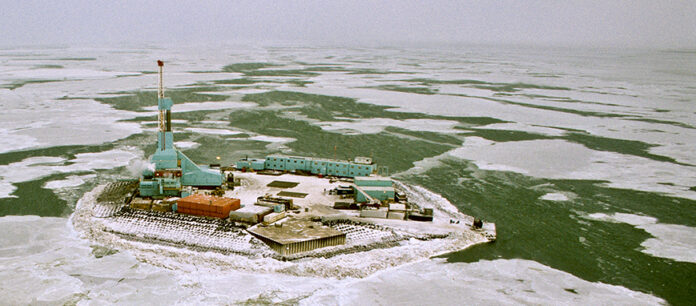Hess Corp., a family-owned company that drilled its first wildcat well in Prudhoe Bay at the advent of the Alaska oil boom in 1970, has been sold to Chevron for $53 billion. Chevron was active in developing Alaska’s Cook Inlet during early statehood and is part of joint ventures on the North Slope.
The 90-year-old Hess Corp. was founded by Leon Hess, who went from rags to riches, and had been continued under the leadership of his son John Hess. The company explored for oil across the world, from Africa to Alaska, and from the North Sea to the Caribbean. Hess was the last standing major oil company in America that was majority owned by a family.
“The dynasty has loomed large over the oil patch since 1933, when Leon Hess got tired of lugging bags of coal and started distributing heating oil. Walking in the footsteps of John D. Rockefeller’s Standard Oil, he built a fuel-marketing business that covered the East Coast with Hess-branded gas stations. He also ran what was once the world’s largest refinery,” wrote the Wall Street Journal. “In the following decades, the company dotted North Dakota with rigs during the shale boom, drilled in the Gulf of Mexico and helped uncover one of the biggest oil fields in South America.”
In an interview with Financial Times, John Hess said the time was right: “Our company is 90 years old — an anniversary we’re celebrating this year — and it all started with my father driving a second-hand truck delivering fuel oil during the Depression.”
During the time the company was prominent in Alaska, it was known as Amerada Hess, due to a merger with Amerada Petroleum Corp. in 1969. By May of 1970, Amerada Hess drilled the first successful wildcat well in Prudhoe Bay on Alaska’s North Slope.
The next year, Amerada Hess was one of several oil companies invited by the Canadian government to work on building pipelines from the North Slope through Canada to the United States. That never came to fruition due to the permitting of the Trans Alaska Pipeline System.
Hess continued working in Alaska and in 1974 was the first company to apply for permits to unload supertankers from the Trans-Alaska Pipeline.
In the 1980s, the State of Alaska sued 17 oil companies for underpayment of oil production royalties. The case was named after Amerada Hess, because it was the first company in the alphabetical list of all the defendants. The oil companies eventually settled in 1997 in Alaska v. Amerada Hess et al. after 15 years of court proceedings; the settlement was about $600 million out of the $902 million that the State of Alaska said was due.
By 1986, Amerada Hess reported it had discovered oil about five miles west of Seal Island in the Beaufort Sea, in a joint venture with Shell Western Exploration Production Inc., Amoco, Texas Eastern, and Murphy. The Seal Island project was the world’s first artificial manmade island in the Arctic to yield commercial quantities of oil and gas.
Mergers and acquisitions typical of the industry also mark the history of Hess, which acquired Monsanto Oil Company and Triton.
The company began focusing elsewhere and its business model changed over time. It sold off its retail locations, and spun off some of its operations around the globe. In 2003, Hess sold its 1.5 percent stake in the trans-Alaska pipeline system to ConocoPhillips.
Currently, Hess is focused on oil in North Dakota, the Gulf of Mexico, and overseas, including Guyana and Malaysia.
The sale of Hess to Chevron is on the heels of another big consolidation — Exxon just acquired Pioneer Natural Resources for roughly $60 billion. Pioneer had made discoveries in the offshore Oooguruk field, west of Prudhoe Bay and in 2008, became the first independent operator to produce oil on the North Slope. It divested its Alaska operations to Caelus Energy in 2013 and exited Alaska for better prospects in the Permian Basin.
